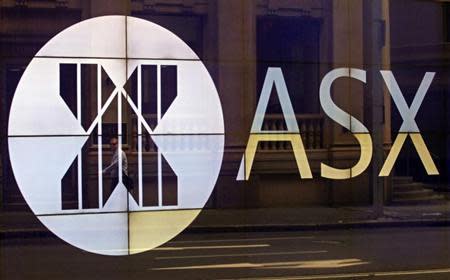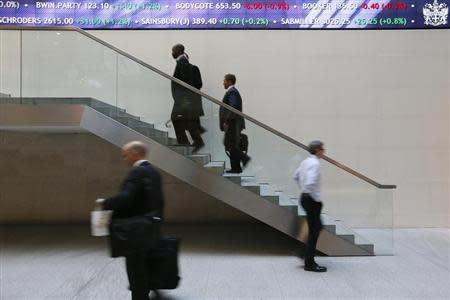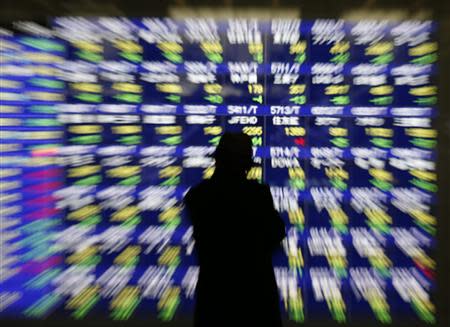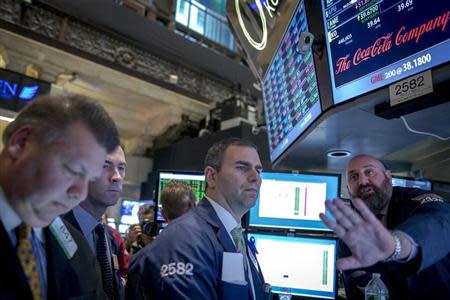Tapering prospects boost dollar, European stocks at new peaks
By Carolyn Cohn LONDON (Reuters) - European shares hit fresh 5-1/2 year highs on Tuesday, boosted by easier Chinese money markets and a strong performance from Unilever, while the dollar rose on a report the Federal Reserve would again trim its bond buying next week. Chinese money market rates fell after the central bank added more than 255 billion yuan ($42 billion) into the financial system, easing concerns another credit crunch was underway less than a month after a late December squeeze. In Europe, a fourth-quarter recovery in emerging markets sales boosted consumer goods maker Unilever s 2013 results and sent its shares up nearly 4 percent. European shares <.FTEU3> hit 5-1/2 year highs, although world stocks <.MIWD000000PUS> were steady overall. U.S. stock futures were also pointing higher, with the S&P 500 up 0.26 percent and the Dow up 0.5 percent. The euro fell towards Monday's two-month troughs after the ZEW indicator of German economic sentiment for January unexpectedly fell to 61.7 after surging to 62.0 in December. The key Euribor lending rate held steady, however, as banks slowly reduce their reliance on European Central Bank funding and turn to the market again in a sign of growing confidence. The ECB has pledged to intervene should the rise in bank-to-bank lending rates that underpin borrowing costs across the economy become "unwarranted". The dollar was broadly stronger, bouncing to 104.68 yen after the Wall Street Journal reported the Federal Reserve is on track to trim its bond-buying for the second time in six weeks, paring back by $10 billion to $65 billion a month. A lacklustre U.S. jobs report had not diminished the central bank's confidence in the economy, wrote Fed watcher Jon Hilsenrath. Investors suspect he has an inside line to policy makers and put a lot of weight on his opinion. Ten-year U.S. Treasury yields rose 2.5 basis points to 2.85 percent following a U.S. market holiday on Monday, while German government bond futures fell 4 ticks. The yen was also under pressure after Japan's central bank began a two-day policy meeting at which it is expected to keep its massive quantitative easing program unchanged. "We do share the view that monetary policy in the U.S. will be less accommodative and that is helping the dollar against the yen," said Manuel Oliveri, FX strategist at Credit Agricole. "On the yen side, there is some positioning that the Bank of Japan may sound more dovish at the end of its policy meeting this week." Brent crude jumped $1.42 to $107.77 a barrel as the International Energy Agency raised its forecast for global oil demand this year, citing accelerating economic growth. Turkey's lira plunged to a fresh record low after the central bank left interest rates unchanged, defying some market expectations for a rate rise, given high inflation and the weak currency. The lira has hit a string of record lows as a government corruption scandal undermines already fragile investor confidence. Turkey's huge current account deficit, which it relies on foreign investment to finance, means its economy is seen as highly vulnerable to the withdrawal of Fed stimulus. Gold steadied at $1,244.10 an ounce, after hitting its highest level since mid-December at $1,259.85 on Monday. (Additional reporting by Anirban Nag in London and Wayne Cole in Sydney; Editing by Catherine Evans)




